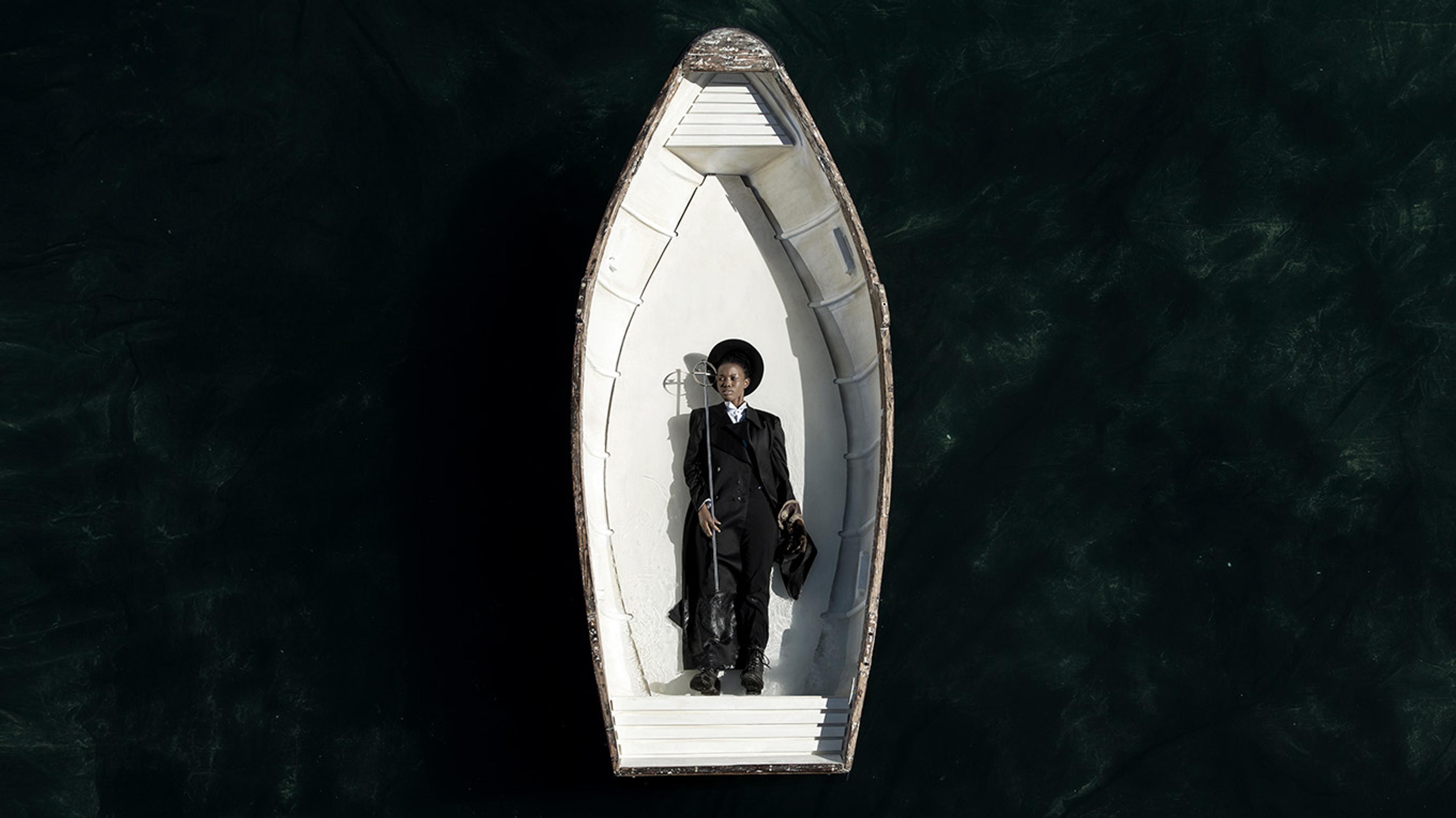Mohau Modisakeng
Passage

In the video work Passage, the ebb and flow of water, as both life giving and deadly, symbolizes the many who have arrived or departed from South Africa in trade, as cargo or as transient bodies belonging to no particular state.
a beginning and an end
In South Africa, systems of indentured labour and slavery were instituted by the Cape Colony in 1652 to meet the growing demand for labour.
In Setswana the experience of life is referred to as a ‘passage’. The Setswana word for life, botshelo, means ‘to cross over’. As such, all human beings are referred to as bafeti (‘voyagers’), a word that points to the fact that the experience of life is transient; it has a beginning and an end, as with any voyage.
Mohau Modisakeng was born in Soweto in 1986 and lives and works between Johannesburg and Cape Town. His work engages race, the militarization of society and the deep divides of post-apartheid South Africa and the post-colonial continent.